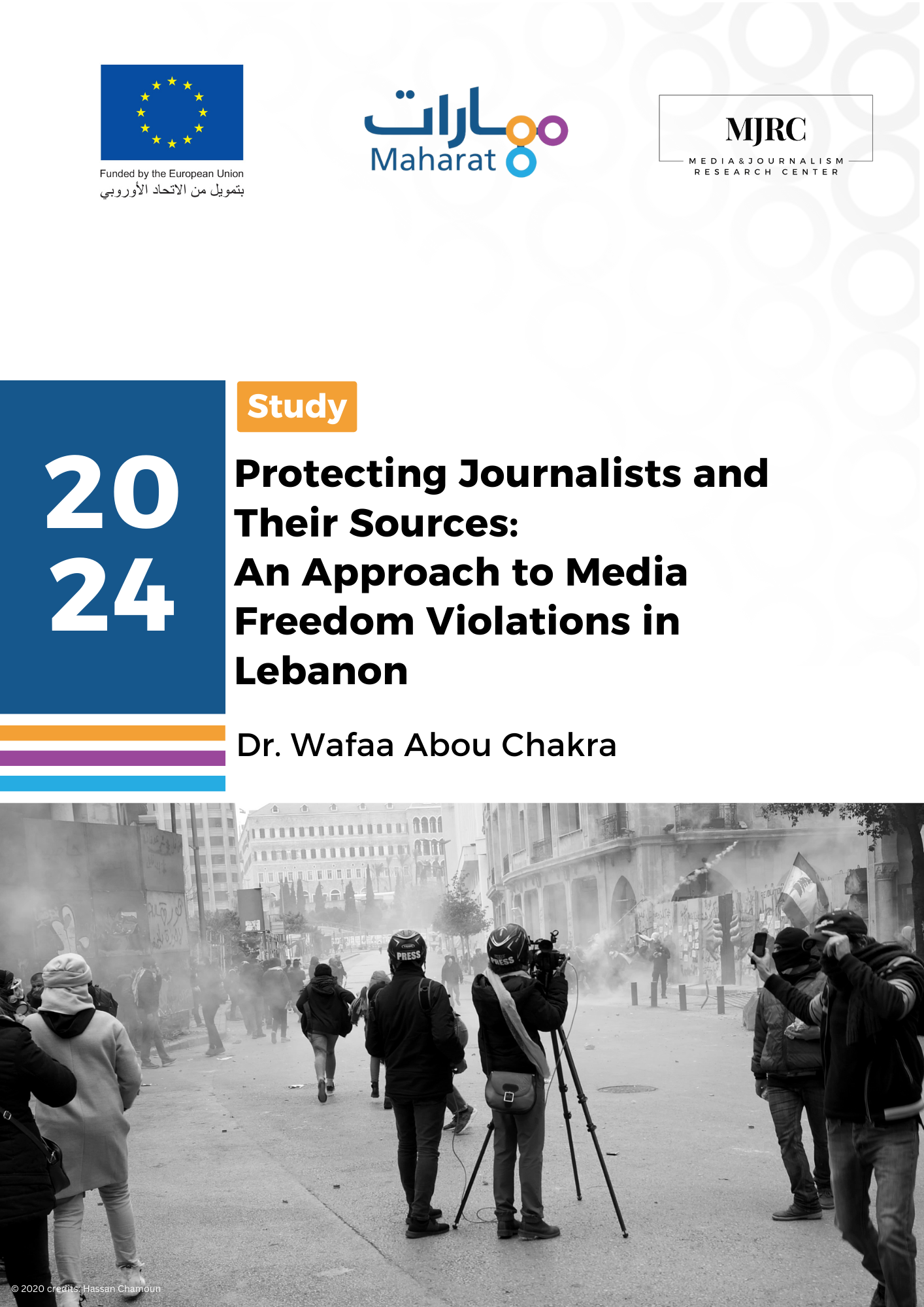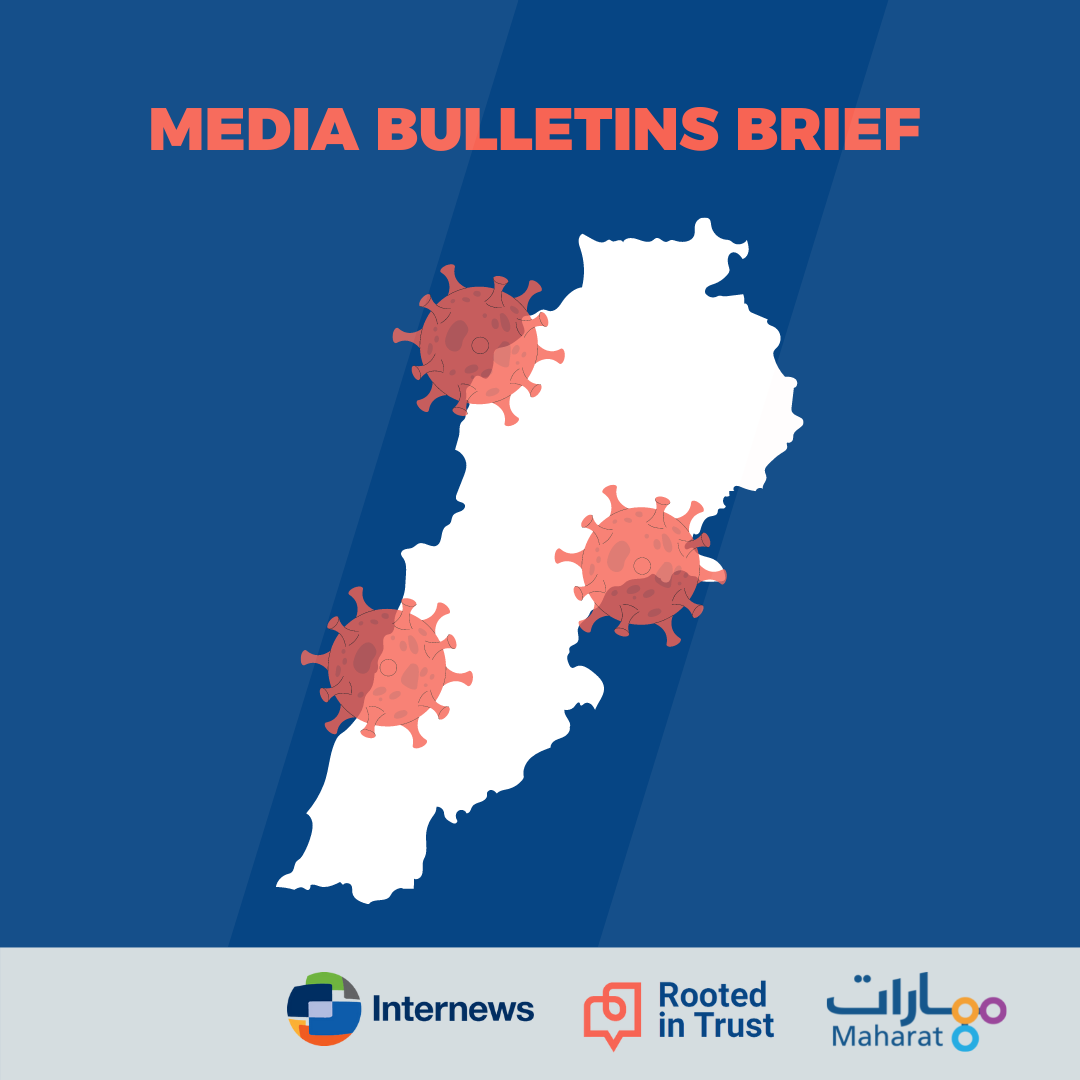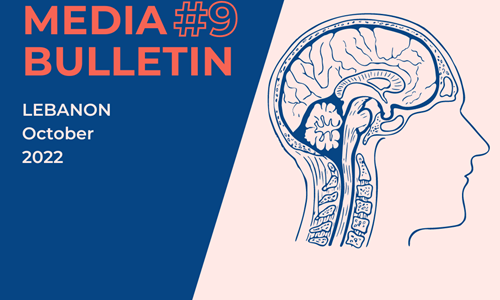
Protection of Journalists and Their Sources
"Protecting Journalists and Their Sources: An Approach to Media Freedom Violations in Lebanon" a study by Dr. Wafaa Abou Chakra, examined the extremely unhealthy state of freedoms in Lebanon and the need for journalists to have three types of protection: institutional, legal, and syndical. These protections can shield them from two kinds of risks: first, the violations and assaults that target them physically as well as affect their lives while practicing their profession (murder, physical violence, detention, dismissal from work, lack of health insurance, and other social guarantees, etc.); and second, the difficulties and pressures that hinder them from performing their duties professionally and competently (self-censorship or direct censorship, containment, attempts at discipline, indoctrination, enticement, and intimidation, etc.).
This research paper aimed to investigate whether the issue of protecting journalists and their sources in Lebanon is being discussed amidst the preparations for the new media law in the Lebanese parliament.
It concluded that protecting journalists from all kinds of threats, ensuring their free access to information, the right to maintain the confidentiality of their sources, and countering the impunity of those who attack them, are three mandatory conditions that must be explicitly included in any new media law in Lebanon.
To access Dr. Wafaa Abou Chakra's study:
Protecting Journalists and Their Sources: An Approach to Media Freedom Violations in Lebanon
“Protection of Journalists and Journalistic Sources in Europe” a study by European expert Dr. Judith Pies from the European Media and Journalism Research Center, addressed general media systems, such as the liberal model that reflects how media operates in Europe, and the free clientelism model characterized by the control of political parties and their ownership of media outlets. Lebanon is deeply rooted in this model.
To access Dr. Judith Pies's study:
Protection of Journalists and Journalistic Sources in Europe
The findings of both studies conducted by Dr. Wafaa Abou Chakra and Dr. Judith Pies, as well as the conclusions from the seminar organized by Maharat on July 18, 2024, concerning the state of media in Lebanon in light of the proposed media law being discussed by the Lebanese Parliament, were relied upon to prepare a standards setting document summarizing best practices regarding areas related to protection of journalists and their sources.
The standard setting document included recommendations to the authorities to enact a law that protects journalists, abolishes their criminalization and imprisonment, allows the establishment of new media institutions without restrictions, protects journalists from assaults, punishes those who attack them, ensures their freedom of work, guarantees their right to access information, and protects their sources.
Additionally, recommendations to the media sector included improving the status of media workers in terms of their livelihood security and professional freedom, activating syndicates to play its role, and continuously training journalists on safety and security during their fieldwork and in the digital world.
Finally, recommendations targeted the international community towards enhancing exchanges with international organizations to support media institutions, train journalists, and support independent media outlets.
To access the standards setting document on "Protecting Journalists and Their Sources", click here.
These studies are part of the media reform studies series under the Academic Exchange Program between Maharat foundation and Media and Journalism Research Center, as part of the "Media Reform to Enhance Freedom of Expression in Lebanon" project in collaboration with Legal Agenda and Media and Journalism Research Center, with the support of the European Union.





